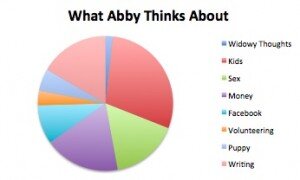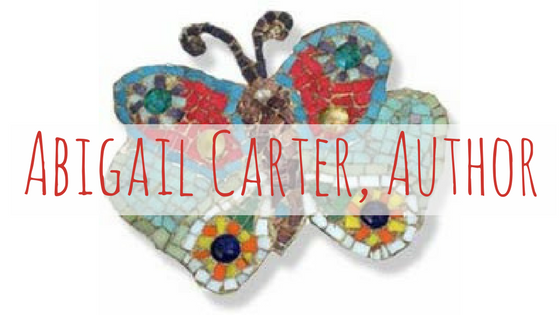Perpetuating Loss Redux
My last post generated quite a lively discussion and so I thought I would try and hone in on some of the issues it raised. In particular, Shafeen's comment:
Perception is an interesting and complex thing – it is generally created with a few “sticky†labels – and once set, the perceiver’s viewpoint is colored by them; more than that, the perceiver’s mode for engaging that thing is defined by these labels and *their* definition of what these labels connote.All I’m saying is if a disproportionate number of your labels are of any one ilk, it becomes more difficult for your peceivers to view you as other than that…
At the core is the idea that after a loss, one is in danger of being defined by the loss, perhaps even labeled with the loss, based on the amount of emphasis it is given in everyday comings and goings. The outside world begins to label us with this dominant trait and this colours their perception of us. We all try to lead balanced lives – parenting, work, relationships, hobbies etc. Given that I am essentially in the "loss" business, all things widowy dominate a larger portion of my pie chart than they might otherwise. In true Demetri Martin fashion, I have come up with a pie chart of what I think about on a daily basis: I guess it might be important to define "Widowy thoughts." I think it includes the following:ArronSadnessFeeling sorry for myselfAngerLonelinessDepressionBut, as you can see, "widowy thoughts" take up a very small proportion of my brain activity on any given day. Since I write about widowy things and volunteer in widowy pursuits, I suppose if you combine that with "Writing" and perhaps "Volunteering," then you could make the argument that I spend a large proportion of my time thinking widowy things. But I must say that writing and volunteer thoughts rarely includes those thoughts encompassed in "Widowy thoughts." So, OK, let's say that I concede to the fact that maybe I spend a larger proportion of my time thinking widowy things than most people.Does that define me? Maybe. Does it affect my ability to find a meaningful relationship? Maybe. Is it the predominate way that people see me? I don't think so, but maybe.My experience of widows and widowers are that they are often fun-loving (having learned the hard way that life is short), lusty (the healing power of touch), spiritual (have a deep reliance of some kind of faith) and empathetic (they "get it"). Occasionally they are sad (aren't we all?), depressed, (again, don't we all go through depression from time to time?), and sometimes drink too much (are you seeing a pattern here?), and really have a thing for chocolate (right, Supa?).So I don't know, maybe I am OK with donning the widow label, having it take up a larger proportion of my daily thought, writing about it, having it colour the rest of my thinking. Does it limit me? Perhaps. But I believe it expands me more than it limits me. Expands in ways I can still barely grasp. Most widowed people will tell you that they have never felt more alive since being widowed and often feel guilty that their loved one had to die for them to discover that they could live such wonderful, fulfilling lives.This issue seems to center around the viewpoint of the perceiver. Widows force others to face their own mortality. We make people uncomfortable. Perhaps its the reason that widows in India are expected to throw themselves onto their husband's burning funeral pyre. Society doesn't want to be reminded that death happens. Perhaps that is why being perceived as a widow is seen as being "unhealthy" in some way. We are seen as "stuck" in our loss, not "moving on," dwelling in the past, still in love with our lost loved ones. It's funny to realize that maybe it's the rest of society that is "stuck" and "not moving on." We've had the amazing privilege of being jolted awake by our losses. Most of us are not so lucky.So label me widow, because as Michele at Soaring Spirits says, Widows Rock!
I guess it might be important to define "Widowy thoughts." I think it includes the following:ArronSadnessFeeling sorry for myselfAngerLonelinessDepressionBut, as you can see, "widowy thoughts" take up a very small proportion of my brain activity on any given day. Since I write about widowy things and volunteer in widowy pursuits, I suppose if you combine that with "Writing" and perhaps "Volunteering," then you could make the argument that I spend a large proportion of my time thinking widowy things. But I must say that writing and volunteer thoughts rarely includes those thoughts encompassed in "Widowy thoughts." So, OK, let's say that I concede to the fact that maybe I spend a larger proportion of my time thinking widowy things than most people.Does that define me? Maybe. Does it affect my ability to find a meaningful relationship? Maybe. Is it the predominate way that people see me? I don't think so, but maybe.My experience of widows and widowers are that they are often fun-loving (having learned the hard way that life is short), lusty (the healing power of touch), spiritual (have a deep reliance of some kind of faith) and empathetic (they "get it"). Occasionally they are sad (aren't we all?), depressed, (again, don't we all go through depression from time to time?), and sometimes drink too much (are you seeing a pattern here?), and really have a thing for chocolate (right, Supa?).So I don't know, maybe I am OK with donning the widow label, having it take up a larger proportion of my daily thought, writing about it, having it colour the rest of my thinking. Does it limit me? Perhaps. But I believe it expands me more than it limits me. Expands in ways I can still barely grasp. Most widowed people will tell you that they have never felt more alive since being widowed and often feel guilty that their loved one had to die for them to discover that they could live such wonderful, fulfilling lives.This issue seems to center around the viewpoint of the perceiver. Widows force others to face their own mortality. We make people uncomfortable. Perhaps its the reason that widows in India are expected to throw themselves onto their husband's burning funeral pyre. Society doesn't want to be reminded that death happens. Perhaps that is why being perceived as a widow is seen as being "unhealthy" in some way. We are seen as "stuck" in our loss, not "moving on," dwelling in the past, still in love with our lost loved ones. It's funny to realize that maybe it's the rest of society that is "stuck" and "not moving on." We've had the amazing privilege of being jolted awake by our losses. Most of us are not so lucky.So label me widow, because as Michele at Soaring Spirits says, Widows Rock!

